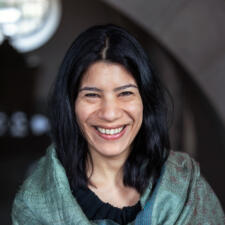In 2019 I received in the mail a small vinyl-covered booklet in light blue, embossed with three golden lions. It is my overseas citizen of India (O.C.I.) card, a privilege for which I qualify as the daughter and granddaughter of people who “belonged to a territory that became part of India after August 15, 1947” — India’s Independence Day, 75 years ago.
My grandparents, who remained Indian citizens despite emigrating to the United States, were fervent proponents of the ideals held by Mohandas Gandhi and India’s first prime minister, Jawaharlal Nehru, for a secular Indian republic committed to democracy and the equality of all people. My O.C.I. status is a sort of heirloom, a beacon of an earlier generation’s hopes flickering faintly on the receding shore of the past.
My family lived in Kolkata on Independence Day, but my grandparents were born in East Bengal, which in 1947 became East Pakistan, which in 1971 became Bangladesh, yet I could not have qualified as an O.C.I. had I been the daughter, granddaughter or great-granddaughter of Bangladeshi or Pakistani citizens.
The O.C.I. card, created in 2005 to appeal to the wealthy Indian diaspora, is an emblem of restrictions on who counts as Indian and what India even is. These have been sharply tightened since 2014 by the government of Narendra Modi, which has presided over a broad assault on the principle of equal rights for all in order to refashion India into a Hindu nationalist state.
Historians can reel off a list of things that contributed to the rise of Prime Minister Modi’s fascistic regime. Let’s start with how, after years of milking India’s wealth and labor, the British tore the country in two and ran away in a matter of weeks, leaving millions to the carnage of partition. Nehru’s liberal, secular vision managed to stave off ferocious Hindu nationalism — one of whose foot soldiers assassinated Gandhi in 1948 — but he failed to deliver the anti-caste egalitarian democracy championed by the Dalit (“untouchable”) activist and author of the Indian Constitution B.R. Ambedkar.
